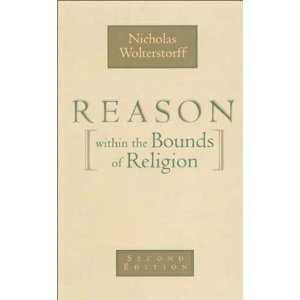Much religious conversation between Christians and non-Christians is a non-starter: it’s over before it even begins. Why? Because before any discussion begins the parties typically have radically opposing views about how to understand human existence.
Here Christians effectively insist: think like me (i.e., accept my beliefs on faith) and then you’ll understand Christianity—and so all of reality—correctly. Non-Christians, for reasons that I’ve already discussed, find this offensive and effectively insist: think (i.e., get in touch with reality, like the rest of us) and then you’ll understand the world (and Christian belief) correctly.
This antithesis represents the different answers that we hold about starting points: which comes first, Christian belief or life experience?
Most Christians that I know do not even recognize this as being a question. In other words, most Christians have an implicit ‘answer’ that is short and decisive: the Bible conditions how we understand existence. Full stop. Any other view contradicts their beliefs and so must be wrong. For most non-Christians that I know the question, when given any air time, is less implicit but the response no less short and decisive: existence conditions how we understand the Bible. Full stop. Any other view is illogical because it negates experience, and so must be wrong.
Yet both of these views fall prey to reductionism: the claim that we can only understand matters in one way (or else be wrong). And the result of reductionism is polarization: holding an absolute position that precludes dialogue, just as I have described above.
Strikingly though, I think that both parties are right and wrong: truth need neither be circumscribed by a certain belief system nor limited to a given groups’ rationality or experience. In other words, both views require re-formulation because both fail to reflect both the complexity / diversity of human existence and the specificity of the biblical text.
Let’s start with the typical Christian perspective. When Christians consider (and do not dismiss) the above question, how do they respond? A Christian professor of mine did so by citing what he called the Christian tetralectic (or “Wesleyan Quadrilateral”). He suggested that in order to arrive at truth Christian thinking draws from four sources: Scripture, tradition, reason, and experience. When asked how to adjudicate between them when they are in conflict, he responded that a Christian should always privilege Scripture.
His model assumes that Christianity is good and the Bible is valuable, which indeed it may be. Yet it fails to assume that Christianity can also be bad and the Bible problematic.
Here are two examples:
First, a philosopher referred to writing as two-edged sword—a “Pharmikon,” he called it. In brief, writing is valuable for recording events and can contain, and present things in a manner that speech cannot. Yet writing is problematic in that it effectively replaces memory and can give the appearance of knowledge without any real understanding.
The role of the Bible as Scripture, a text that is determinative for life and practice, is similar. Scripture helps Christians to understand who God is and what Christian practice is about, but can be problematic when Christians equate these understandings with God and with practicing the Christian life.
Second, the problem becomes worse—and the solution more inaccessible—when entire Christian contexts are characterized by corruption or dysfunction (as the corrupt church in Nazi Germany / apartheid South Africa, but also the dysfunctional church as characterized by over-confidence and informed by a good portion of current, biblical hermeneutics).
Within such contexts the only endorsed interpretations of Scripture are those that validate (and so perpetuate) this very context. Yet one can only reject such corruption or dysfunctionality by privileging one’s experience and understanding over such interpretations of Scripture.[1. Many Christians insist that what actually happens in such cases is that better interpretations replace poorer interpretations, but this is inaccurate: within these Christian contexts such resources simply are not available because the prevailing interpretations represent standards of faithfulness for the community (and so embracing other perspectives is only a possibility for those already outside / moving out of the community). Thus the catalyst for change is not Scripture but experience, which then may inform future (and better) interpretations of Scripture.]
While the discussion is much longer, this highlights the need for a crucial modification to my former professor’ model: where his embraces faith (in Scripture, in reason, in experience, in tradition) we need also suspicion. And we need not only suspicion of others but also the ability to re-orient it towards ourselves.

